COMMUNITY
HEALTH TIPS
RESOURCES
WE'VE BEEN BUSY IN YOUR COMMUNITY!
El Centro De La Raza's 16th Annual Cinco De Mayo Celebration
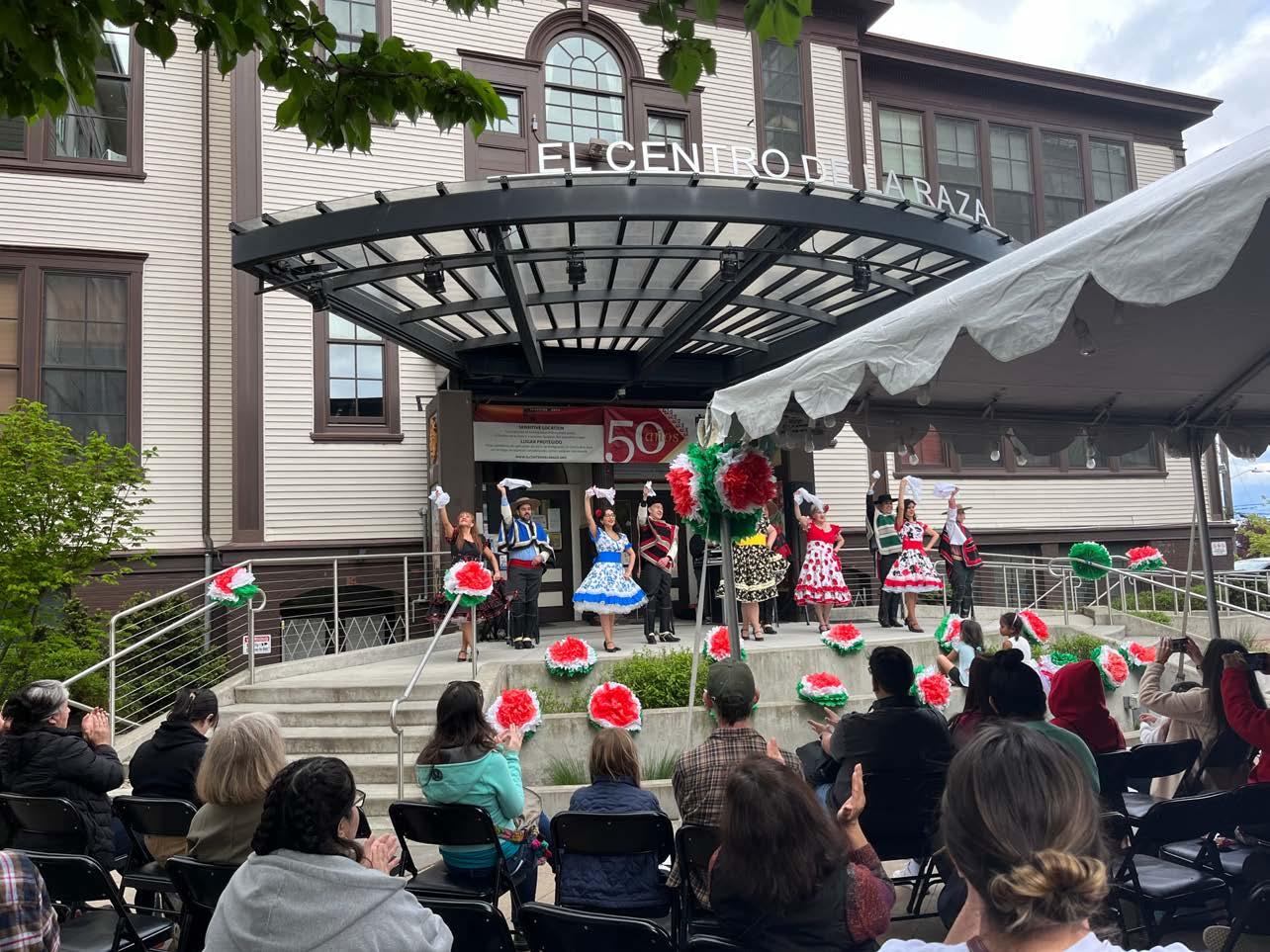
The Alzheimer’s Disease Research Center (ADRC) participated in EL Centro De La Raza’s 16th Annual Cinco De Mayo Celebration on May 6, 2023. Team members Janet Rojina and Katherine Lopez presented information on Alzheimer’s and shared resources with the community members joining the celebration. This event was a great opportunity for the Latino/a/x community members to learn about the importance of participation in research.

2023 Washington State Promotores/Community Health Workers Training
Faculty members from the ADRC attended the 2023 Washington State Promotores/Community Health Workers (CHW) Network Training that took place at Lazy F Camp & Retreat Center in EllensburgWashingtonfromMay29thtoMay31st.TheCHWNetworkTrainingisanannualevent wherepromotoresacrossWashingtonstategatherforworkforcedevelopment.LindaKo,PhDand Karen Torres, Psy.D. were invited to present on brain health, ADRC, and the importance of communityrepresentationinresearch. Duringthistime,peoplesharedtheirpersonalstorieswith Alzheimer’sdisease,askedquestionsaboutAlzheimer’sDiseaseandRelatedDementias,andwaysto receiveinformationonnextstepstoparticipatinginresearch.
TEAMMEMBERSPOTLIGHT

Sonia Bishop
Sonia is a Research Scientist who is collaborating with the UW ADRC Community Advisory Board and leading recruitment and enrollment of Latino/a/x and Asian American and Pacific Islander (AAPI) participants. As a member of Dr. Ko’s multicultural research team, she has developed close relationships with communitybased organizations serving immigrant populations including Latinx and Asian American communities. She has over 20 years of research experience working with over 40 different worksites, leading Employee Advisory Boards and Community Advisory Boards. Sonia has managed research projects in Seattle, Lower Yakima Valley of Washington state and the Navajo Nation. Outside of work, Sonia spends time with her family. She has two sons, one in high school, the other in the United States Army. She enjoys running, swimming and mountain biking.
UW ADRC COMMUNITY NEWSLETTER
DISCOVERIES MEET THE TEAM UPCOMING EVENTS
SUMMER 2023
New Clues to Alzheimer’s Emerge in a Study of the Brain’s Immune Cells
UW researchers using brain autopsy samples from 22 ADRC research participants have made a new discovery about microglia and their relevance to Alzheimer's disease and targeted therapeutics.
Microglia are a type of cell that play important roles in our brain health. They have a diversity of jobs, including maintaining normal brain function, fighting infections, and cleaning up and disposing of dead cells and waste. This waste-disposal system has the big responsibility of digesting clumps of abnormal proteins that can accumulate in the brain and eventually raise the risk of Alzheimer's disease.
Research suggests that in people with Alzheimer’s disease pathology in their brains, some microglia react too strongly, causing so much inflammation that the response drives the disease, rather than preventing it.
ADRC researchers want to learn more about the groups of microglia that respond to Alzheimer’s disease. To do so, they study the microglia gene expression, or the messages that get turned into proteins for use in the cell to perform their specific job. The researchers found three different groups of microglia that have not been seen before in the human brain.
"That was a really interesting finding for our team," says Katherine Prater, PhD, a post-doctoral research fellow at the UW School of Medicine in the Jayadev Lab.
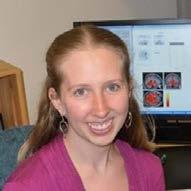 Katherine Prater, PhD | Suman Jayadev, MD
Katherine Prater, PhD | Suman Jayadev, MD

All three groups showed signs of being involved in the waste disposal duties. But they found one of these groups more often in brains of people who had Alzheimer's disease during life. These microglia also showed signs of inflammatory activity. This finding suggests that they might be responding to the stress of Alzheimer's pathology in a specific way," says Prater.
The team developed a new application of an existing technology to extract microglia from autopsied brain tissue. Their method allowed them to obtain microglia in greater amounts than previously possible, giving them the ability to describe, in depth, the different groups of microglia cells that are present in the brain.
The findings provide a new clue to how some microglia react to Alzheimer's disease and could potentially be targeted by a future treatment. “Instead of using medications to treat the whole immune cell population, we can now target just the type of microglia that are harmful,” says Prater. The team is now positioned to study microglia’s role in Alzheimer’s disease, with more precision than ever before which can ultimately lead to better treatments in the future.
Study: Prater, K.E., Green, K.J., Mamde, S. et al. Human microglia show unique transcriptional changes in Alzheimer’s disease. Nat Aging (2023).
Tips for Brain Health and Wellness
Build a healthy plate. Choose more whole grains, berries, leafy vegetables, nuts, seafood, olive oil, and fermented foods, such as plain yogurt, kimchi, miso, and kefir. Eat less highly processed food such as white bread, packaged sweets, and soda. Take time to relax. Sit outside in nature for 20 minutes. Pay attention to your breathing and tune in to the sounds around you. Notice the wandering of your mind, and bring your attention back to the present, without judgment.
Get moving! In whatever way is safe for you, try and engage in a physical activity every day - like walking, dancing, or low-impact chair exercises. Learn something new, together. Pursue energizing activities that widen your social circle. Sign up for an introductory art class, volunteer at a local organization, or join a walking group. Build your sleep power by doing something physically active or mentally challenging every day. An active day tires you out and helps your brain build up sleep pressure, or the brain's drive to sleep and stay asleep, in order to recover, recharge, and clean out waste products.
Learn more in Food for Brain Health and Wellness from the Memory and Brain Wellness Center.
Update from The ADRC Data Management and Statistics Core
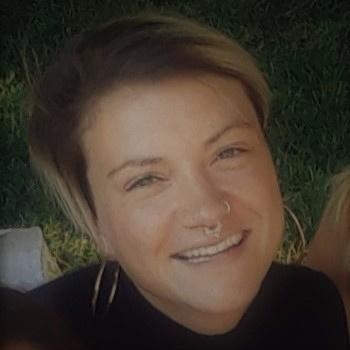
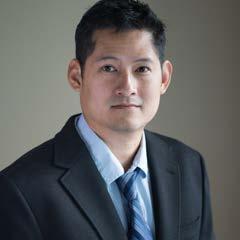
The Alzheimer’s Disease Research Center (ADRC) is grateful to the people who participate in our studies on how memory and thinking may change over time. The process of research participation generates a large amount of data, a source of information, on brain health. The job of stewarding this precious data is so important that an entire wing of the ADRC is devoted to this work: The Data Management and Statistics (DMS) Core. This Core is co-led by Ali Shojaie, PhD and Astrid Suchy-Dicey, PhD.
The first job of the DMS Core is to ensure that information collected from our research participants is correctly entered and stored safely and securely in UW secure databases. The DMS team also prepares study data for other researchers to use to make scientific discoveries about brain health and Alzheimer’s disease.
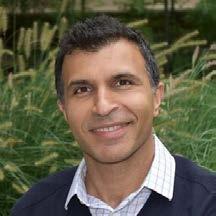

As of 2023, the DMS Core is completing a long-term project to improve and streamline the process of collecting and entering all participant data into ADRC databases. The new system will allow for more direct and accurate collection of participant data, and to serve as a comprehensive record of how a participant has interacted with the ADRC, including what types of data have been collected and when. Development of this new “electronic data capture” system has been led by ADRC team members Tung Le and Robin Stillwell.
“When people hear ‘data management and statistics’, they might think of it as mysterious,” says Suchy-Dicey. “But data touches everything in our center. It’s not always pretty, but it’s important. Data is the concrete foundation of the ADRC. It’s exciting to be a part of the center, and work to make the foundation as strong as it can be."
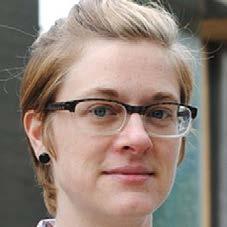
Another key goal of the DMS Core is to guarantee that the research studies performed using ADRC data are high quality and yield results that advance the field of Alzheimer's research in meaningful ways. “If a researcher wants to use any aspect of ADRC data, we can help them figure out the best way to design their study for the analysis that they want to do,” says Shojaie. The DMS Core acts as a gatekeeper of participant data. The DMS team ensures that data become “de-identified,” which means that the data records are not linked to any personal information for privacy.
The DMS Core is especially proud to support the ADRC Development Projects awarded to junior investigators each year. The DMS Core team helps the awardees to think about the best way to use ADRC data and the mathematical approaches needed to answer their research questions. The 2023-2024 projects include a study on how treating sleep disorders may improve brain health and other exciting projects in Alzheimer’s disease made possible by our generous community members.
UPCOMING EVENTS
To find local events about Alzheimer's and brain health, visit the UW Medicine Memory & Brain Wellness Center's online calendar: depts.washington.edu/mbwc/calendar
"It’s exciting to be a part of the ADRC, and work to make the foundation as strong as it can be."
Ali Shojaie, PhD Astrid Suchy-Dicey, PhD
Tung Le
Robin Stillwell, MHIHIM
Follow us on Facebook at facebook.com/UWADRC
Alzheimer's Association
Phone: 1-800-272-3900
Email: info@alz.org
Website: alz.org
Call the Alzheimer's Association 24-Hour Helpline to speak for free to a Master's level social worker, any day or time.
Questions about this newsletter:
Call the Alzheimer's Disease and Related Dementias Education and Referral Center (ADEAR) at 1-800-438-4380.
Explore the monthly education programs offered by the Alzheimer's Association WA State Chapter: alz.org/alzwa/helping_you/education
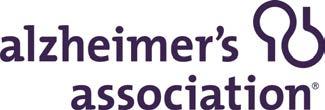
Email: adrc-community@uw.edu


UW Memory and Brain Wellness Center
Web: uwmemoryandbrain.org
En español: memoria.uw.edu

Conexion Contigo by Lupita Zamora is an independent Spanish language radio program for the community where you will find information, opportunities and more.

facebook.com/ConexionContigoRadio
Visit Alzheimers.gov for updated health information tailored to caregivers, people living with dementia, and professionals.
En español: Alzheimers.gov/es
UW Alzheimer's Disease Research Center Web: uwadrc.org
Phone: 206-744-0588 or Toll-free at 855-744-0588
Email: uwadrc@uw.edu




 Katherine Prater, PhD | Suman Jayadev, MD
Katherine Prater, PhD | Suman Jayadev, MD










